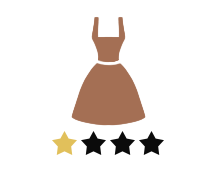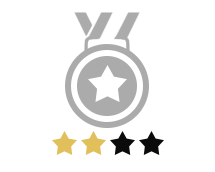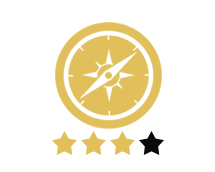Education
Around the World
.
.
.
.
.
.
.
.
Education is something that is important to every single one of us. We all need one to get on in life.
One thing I have come to realise though is that education isn't the same all over the world. It differs from country to country. This is something I find really interesting and this article is to show you what education is like in other countries around the world.
Thank you to Hypoxic, Scoff, Eli and VintageBeauty for writing the information about their country. I wanted you to get firsthand knowledge of what the education systems are like.
.
Education in the UK isn't the best in my opinion, as I have lived through it. Here I will provide you with all the information on how the education system works over here. We will also look at the Scottish education system, which is surprisingly different from England's education system. We will learn about this from Scotland's own Hypoxic.
We start nursery at age four and we stay there for a year. We start to learn basic things such as writing your own name and about letters and numbers. This is to get us use to things such as being in a group with other children and taking a register.
After this we will move up to primary school. We will stay there for three years, being in the infant class (can also be known as foundation or reception class) year one class and year two class. During these years you will take tests known as SAT's. We will be in primary school from the age of five until seven.
After primary school, we go up to junior school where we complete year three, four, five and six. We will take another round of SAT exams in years four and six. The tests taken in year six are the most important as they determine your predicted exam grades in the future and predict what classes you will be going to secondary school, the next stage of your education.
At age 11 you will move up to what is known as secondary school. You will attend from the age of 11 to 16. You will complete years seven to eleven. In the last two years of secondary school you will complete the exams that will be the most important exams you will have taken in your school career. These are known as GCSE's. You will take GCSE's in:
English
Maths
Science
History or Geography
You will then be able to pick a range of other courses to take as well such as:
Art
Business
Catering
Psychology
Engineering
Fashion Design
Music
Performing arts drama or dance
Sport studies
Spanish
Health and social care
ICT
You can usually pick up to two or three of these optional courses to take. You will start these courses in year ten and take your final exams in these subjects in year eleven at age sixteen. The results you gain from these exams will be used to help you get jobs in the future and will help you get into universities. These exams are graded on a letter basis. Here are the grade you could potentially get;
A*
A
B
C
D
E
F
U
A*, A, B and C are considered the best grades you could get and anything below these grades could be then considered as a fail.
Once you have taken your GCSE exams you will move on to sixth form or college where you will take courses such as A Levels until the age of eighteen. After this, you are then free to go into a full-time job or progress onto further education such as university.
That is the basics of the English education system. I hope it gives you some insight into education over here.
Now, over to Hypoxic who will tell you about the Scottish education system.
The Scottish Education System is fairly straightforward and gives you the chance to experience a variety of courses. As well as letting you decide how far you want to progress in courses and what exam fits your abilities.
Scottish education system: You begin in nursery for around two years, the length is optional and depends on when parents want their kids to start. Which leads on to seven years of primary school, where you cover basics and sit tests in maths and English. Once primary school is over the real work begins in Academy.
The first two years you take eight subjects and rotate in some of them. For example, the social sciences. You would do a block of four weeks in geography, then move onto modern studies, then history and then go back to the start again. The idea was to give everyone a taste of what each subject was like.
In 3rd year you get to pick your subjects that you take for your standard grade exams, the first "serious" exam you are met within education. It was mandatory to take maths, English and at least one science. Standard grade exams were graded from 1-6. Receiving a 1 or a 2 was the equivalent to an A, 3-4 a B, 5 a C and 6 a D. If you got a 7 you had failed the subject. You spent both 3rd and 4th year preparing for these exams.
Once 4th year is completed you can choose to leave school if you are 16 or older to work or study at college. I carried on into 5th year where I took six subjects. Most of which were Higher level. These were graded on an A-D band scale. I also took Intermediate 2 in biology. Intermediate level exams were meant to be a stepping stone between standard grade level and higher. However, these no longer exist in Scotland as my year were the last to sit them.
6th year is also optional, and where you get the chance to do Advance Highers. These could help you gain entry into the second year of university if you got between a A & B (of course depending on which course).
.
Eli is now here to tell you about Canada's education system.
So, education in Canada is a bit tricky to give a good definition for because in Canada the education system is dictated by the provincial government rather than the federal, so it differs through all provinces and territories in Canada.
From my personal experience in school from Manitoba, I started Kindergarten when I was 4 or 5. The age you get in kind of depends on your birthday and how lenient the school is taking on a 4 year old. I started when I was five though as did most kids that I knew.
So, you start in Kindergarten and then from there grades 1 - 6 would be your Elementary school years. Grade 7 through 9 is middle school (depending on the school, it could be 6 - 8 or 7 - cool and high school is most likely to be grades 10 though 12 and sometimes grades 9 through 12 depending on the school.
I went to several elementary schools as a kid and they were all vastly different. I don't remember much from them since I was very young, but I remember my first school put a huge emphasis on sports, even at a very young age. We had a day of the year when you went around the school yard doing mini-Olympic games to earn jelly beans. It was pretty fun from what I remember.
Another one of my elementary schools put a lot of emphasis on learning about Aboriginal culture, learning about their traditions, foods, folklore and so on. I think that mostly had to do with where the school was located in honestly.
And another school, put emphasis on learning French and music, I think that emphasis also came from the area the school was located in. So I guess that says something about the schooling system. The curriculum is regulated by the provincial government but the schools themselves take on the area they teach from.
In middle school, I only went to one and they had a very sporty and community feel. From there we would stay in the same class group and go to different classes. We were expected to get there on our own, but as a class. The only times the classes were ever split was when we were doing shops classes or our one choice of elective. Art, Band, Choir or Dance. I chose art, every year my entire life and I'm still awful at it.
Shops classes only lasted in middle school and I believe they're called home economic classes in other places. So, we would have to go to another school that hosted the faculties do do things like a sewing class, cooking class, metal workshop, woodworking and electronic workshops. We were also trusted to walk to these schools by ourselves and come back at the end of the day. Our school put a lot of faith into the students.
In high school we had choices coming out of the wazoo. We had the choice of three different maths, four different sciences, three different English courses and tons of electives. My personal favorites were graphic arts, video production, media and broadcasting, cooking and psychology. But there were so many.
We had three types of bands, four types of choir, art, sewing, metals, electronics, woodwork auto shop, dance, drama, three languages classes, web design ... my school had a lot of choices and I'm drawing blanks on them.
In Manitoba we have three provincial exams for Math, Science and English. Those three are the biggies and make up most of your high school GPA. not that that matters much in high school anyway. Then depending on the class and how big or important it seemed, we would have exams in the gym, usually given about 2 - 4 hours to finish them. Small ones like psychology and web design were just done in the classrooms.
In our math exams we're allowed a one sided 'cheat sheet', honestly, match is the worst, That cheat sheet saved my life.
We also had advanced placement classes for English, Math (Calculus), Biology, Chemistry, Physics, and History. I only ever took one AP course and that was to get me out of public speaking since I hated it.
In Canada the grading system is as follows:
A +90.00 - 100.00
A8 5.00 - 89.99
A -80.00 - 84.99
B+ 77.00 - 79.99
B 73.00 - 76.99
B- 70.00 - 72.99
C+ 67.00 - 69.99
C 63.00 - 66.99
C- 60.00 - 62.99
D+ 55.00 - 59.99
D 50.00 - 54.99
F 0.00 - 49.99
In Manitoba, we don't have proms either. That's not education related but it's sad.
.
Scoff is here to tell you about the Swedish education system :)
When do you start school?We start school at 6 in Sweden, but we don't start first grade until the year we turn 7. Basically, what we call first grade here is really second grade, but it lives on because it wasn't until I think the mid-late 90s or so that swedes began starting school at 6. Up until then it had always been the year you turn 7.
When do you leave school? That depends. You might choose to leave school when you've finished ninth grade, that is the year you turn 16, but most people go on to high school, or "gymnasiet", as we call it. You normally graduate high school the year you turn 19.
What's your grading system like?A-F, where F is a failing grade and E-A different levels of passed grades.
What sort of subjects can you choose to take in school apart from the mandatory ones such as English, maths and science? In most schools, none until gymnasiet. In gymnasiet you get to choose between a bunch of different programmes that consist of different courses and provides you with different levels of education.
There are two sorts of programmes: practical ones and ones that make it possible for you to enroll in further education. The practical ones are, among others, car mechanics, hair dressing and so on, carpentry, and childcare. The other ones are social sciences (divided into psychology, media, and society), science, technical science, humanism (philosophy and languages), and "art" (honestly don't know how to translate it) (divided into music, drama, dance, and art).
Apart from that there are usually a bunch of other courses you can take too, but they may vary from school to school. I know some schools offer a bunch of different languages while others don't, for example. Most of the time it's just basics that wasn't included in your choice of program though, such as science, more advanced math courses, Spanish, German, or French, music, advanced English, and so on.
.
And finally, VintageBeauty is here to tell us about America's education system.
When do you start and leave school? Both age and time wise? It varies when schools start. It really depends on which type of schools you're referring to and from each town/country/state.
Pre-School Ages (Just wanted to clarify that Pre-School is optional and not every goes to it) Ages (around) : 3-4
Elementary School Grades + Ages:
Kindergarten: 5-6
1st grade: 6-7
2nd Grade: 7-8
3rd Grade: 8-9
4th Grade: 9-10
5th Grade: 10-11
6th Grade: 11-12
Middle School Grades + Ages:
7th Grade: 12-13
8th Grade: 13-14
High School Grades + Ages:
9th Grade: 14-15
10th Grade: 15-16
11th Grade: 16-17
12th Grade: 17-18
These are just the general ages that people are when they go to these grades. Some people skip grades. Like, if they're 14 and are supposed to go to 9th grade but are in 10th grade for whatever reason.
There is no pre-set time for all schools. Elementary schools time are different from Middle school. Middle School's time is different from High School and so on. So there's a lot of factors to consider. So for me, I'm in high school, I start at 7:30 a.m. and leave at 2:45 p.m. I used to go to a school that had both Elementary School and Middle School grades combined so I would come to school at 8:00 a.m. and leave at 2:45 p.m. However my Elementary School changed its time because my school was right next to a high school in which would create a lot of traffic around both schools which was highly dangerous. So we left around 2:50 p.m. instead.
I would include more times as I had gone to many other Elementary schools but I can't remember the time when I had to get there and leave.
What's your grading system like?
We get a number grade so it varies for each type of school. For example, my grading scale is 100-90 ( A ), 89-80(B), 79-70 (C), 69-60 (D), and anything 59 below is an F. This grading scale varies for each high school, especially if it's a private high school. But I know that grades below and at from college to first grade have a number grade. I also believe that Kindergarten has a number based grading scale. I don't believe Pre-school (which is below Kindergarten) has a number grading scale, but I can't say since I never went.
And finally, what sort of subjects can you take apart from the mandatory subjects? From Kindergarten-Middle school I had to take the mandatory classes which was Reading, Writing, Social Studies, Math, Science, and Art. I didn't have the option to take different classes until I reached High School. In High School you can set your schedule but when you enter the first year you have to take all mandatory classes. Mandatory classes differ for each High School because they offer different things. When you enter the last year of High School you can take electives in which are just extra classes that can interest you. Some include Theater, Psychology, Law, Music, and Art. These are just some that I know of but I know there's a lot more that I'm forgetting. When you enter College it's different.



 To react to the daily news you need to be logged in.
To react to the daily news you need to be logged in.











